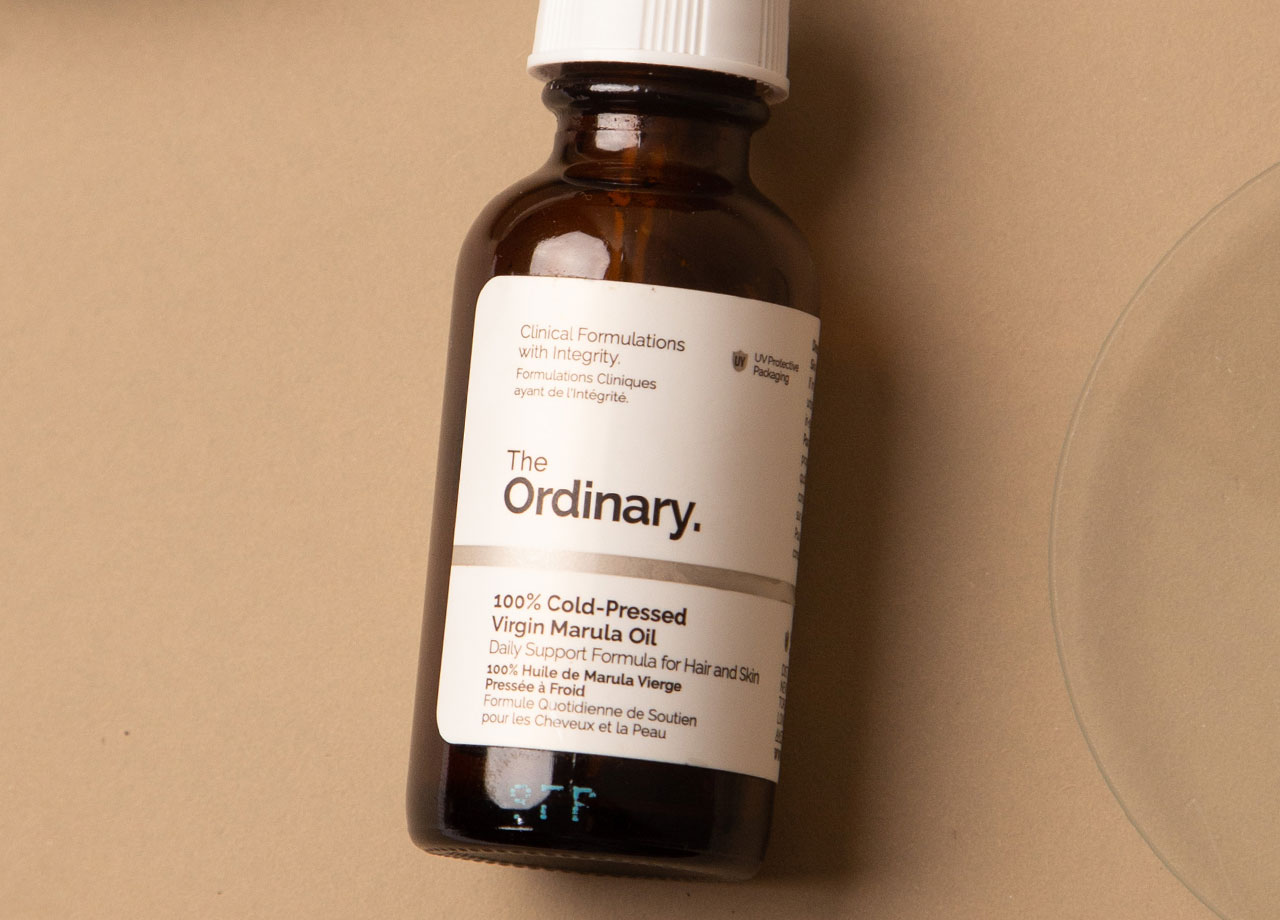
Marula Oil
Marula oil is rich in proteins, fatty acids, and antioxidants. It can help strengthen hair at the root and follicle, protect against environmental damage, and add shine to dry, frizzy hair. It also has anti-inflammatory benefits that can help relieve a dry scalp and dandruff, both of which can inhibit healthy hair growth. It is described as lightweight — you may even be able to use it as a finishing oil (a little goes a long way).
Does it need a carrier oil? No — feel free to apply marula oil by itself.
Almond Oil
Almonds aren’t just great for your health — they’re amazing for your hair’s health, as well. Almond oil is nourishing, hydrating, and contains anti-inflammatory properties. It can improve blood circulation to encourage new hair growth when massaged onto the scalp and helps reduce breakage.
Does it need a carrier oil? No — in fact, almond oil is considered a carrier oil that is excellent to mix in with other effective oils.
Jojoba Oil
Jojoba oil is one of the most beloved oils for your hair because it offers vitamin E, B-complex vitamins, and zinc — with tons of moisture and hydration, to boot. This oil can balance oil on your scalp, unclog hair follicles, and strengthen strands.
Does it need a carrier oil? No.
Peppermint Oil
Looking for a more invigorating oil that you can (literally) feel working its magic on your scalp? Peppermint oil is the perfect choice, as it boosts blood circulation, stimulates hair follicles, and balances your scalp’s oil production. Some studies even suggest peppermint oil dihydrotestosterone (DHT) levels, which is a hormone linked to hair loss.
Does it need a carrier oil? Yes, always mix peppermint oil with a carrier oil — it’s highly concentrated and can cause skin irritation if not properly blended with a gentler oil.
Tea Tree Oil
Similarly to peppermint oil, tea tree oil is going to let you feel its presence on your scalp, thanks to its invigorating, tingly sensations. This oil stimulates hair follicles and has anti fungal and antimicrobial benefits. It also unclogs hair follicles to help promote growth and can reduce inflammation associated with scalp irritation and hair loss.
Does it need a carrier oil? Yes — always dilute this strong oil with a carrier oil prior to application.
Rosemary Oil
We saved one of the best — if not the best — hair oils for last: rosemary oil. Some studies say rosemary oil can prohibit DHT levels to help prohibit hair shedding. It has anti-inflammatory properties and can balance scalp oil production and strengthen hair to help minimize breakage. This oil is often added to shampoos that are marketed for thinning hair — feel free to add a few drops to your shampoo or use it to create a mask or massage oil.
Does it need a carrier oil? Yes — on its own, rosemary oil can be irritating.


